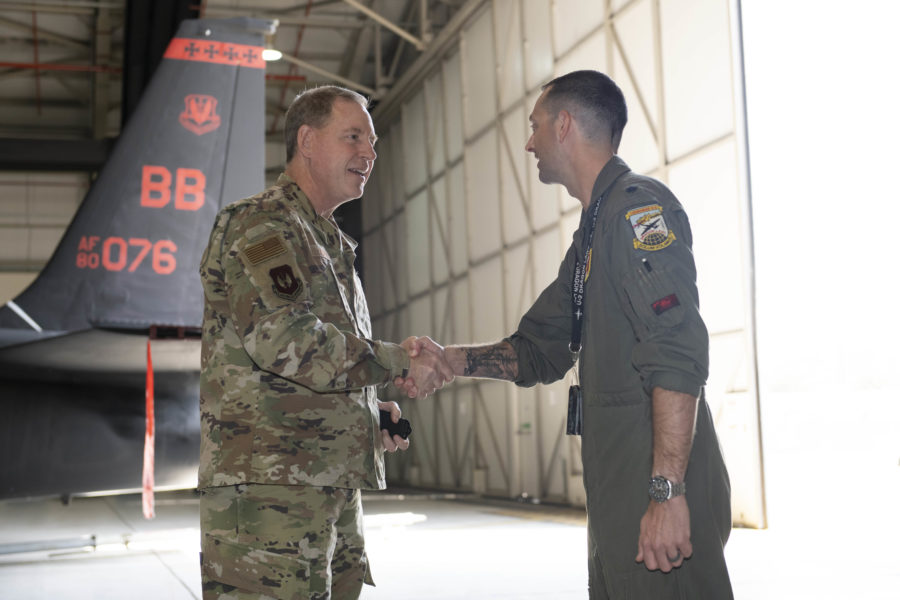FAIRFORD, U.K.—When Gen. James B. Hecker, the new commander of U.S. Air Forces in Europe-Air Forces Africa, got the chance to meet with dozens of other nations’ air chiefs during the Royal International Air Tattoo, the main topic on everyone’s minds was obvious.
“The consensus is that everyone agrees Russia invaded a sovereign country [Ukraine] without being provoked. They just did it. And everyone, I think, is against that,” Hecker told Air Force Magazine in an exclusive interview.
Indeed, much of the Pentagon’s focus over the past few months has been on aiding Ukraine against Russia’s aggression and bolstering NATO’s defenses, and USAFE has been at the forefront, with increased vigilance and extra rotations of Airmen and aircraft in the region.
But while the Russia-Ukraine conflict continues to dominate headlines and concern military and government officials alike, Hecker emphasized that as he settles into his new job, he won’t forget about the other region he’s tasked with overseeing—Africa.
“Right now, the demand signal is a little bit more on the European side, based on what is happening with Ukraine,” Hecker acknowledged. “But it is also relatively constant and maybe increased a little bit on the AFRICOM side.”
While roughly 100,000 U.S. troops are now in Europe, only a couple thousand are now in Africa, and the Air Force presence, in particular, is small, with no permanent USAF installation and limited personnel to cover a massive continent with issues ranging from terrorism to regular regime changes to great power competition, as China and Russia seek to increase their influence.
As a result, the main Air Force mission in Africa is typically intelligence, surveillance, and reconnaissance, usually accomplished with unmanned aircraft such as MQ-9 Reapers.
Those Reapers fly “very long-duration” flights, Hecker said, regularly staying in the air for 24 hours.
That “gets a lot of intel for [U.S. Africa Command boss Gen. Stephen J. Townsend] that he needs,” Hecker added. “And then, if required, we can arm those ISR platforms as well to provide a kinetic activity, if we need that. So that’s a big part of our job in Africa, but a lot of it is not manned aircraft, which we just don’t need over there right now.”
That demand for ISR is only likely to grow. Marine Corps Lt. Gen. Michael E. Langley has been nominated to succeed Townsend as the leader of AFRICOM, and in his confirmation hearing July 21, he specifically pointed to ISR as something he will need more of to monitor and deter terrorist groups that have grown on the continent, such as al-Shabab and Boko Haram.
Al-Shabab, in particular, has gained a foothold in Somalia, where U.S. troops are returning after a brief withdrawal of about a year and a half. And with troops back in that region, AFAFRICA will have to work more with special operators to be prepared for combat search and rescue, Hecker said.
“Once you put human beings there, you need to make sure that if something happens, you have a way to get them picked up,” Hecker said. “So more ISR operations, as well as making sure that we have the capability to get folks out if we need to with pararescue operations.”
While at RIAT, Hecker said he spoke not only to air chiefs from NATO and European nations, but some from Africa as well. His message to them was simple: “It’s something that I need to balance and make sure I’m not just paying attention to one [area of responsibility].”
